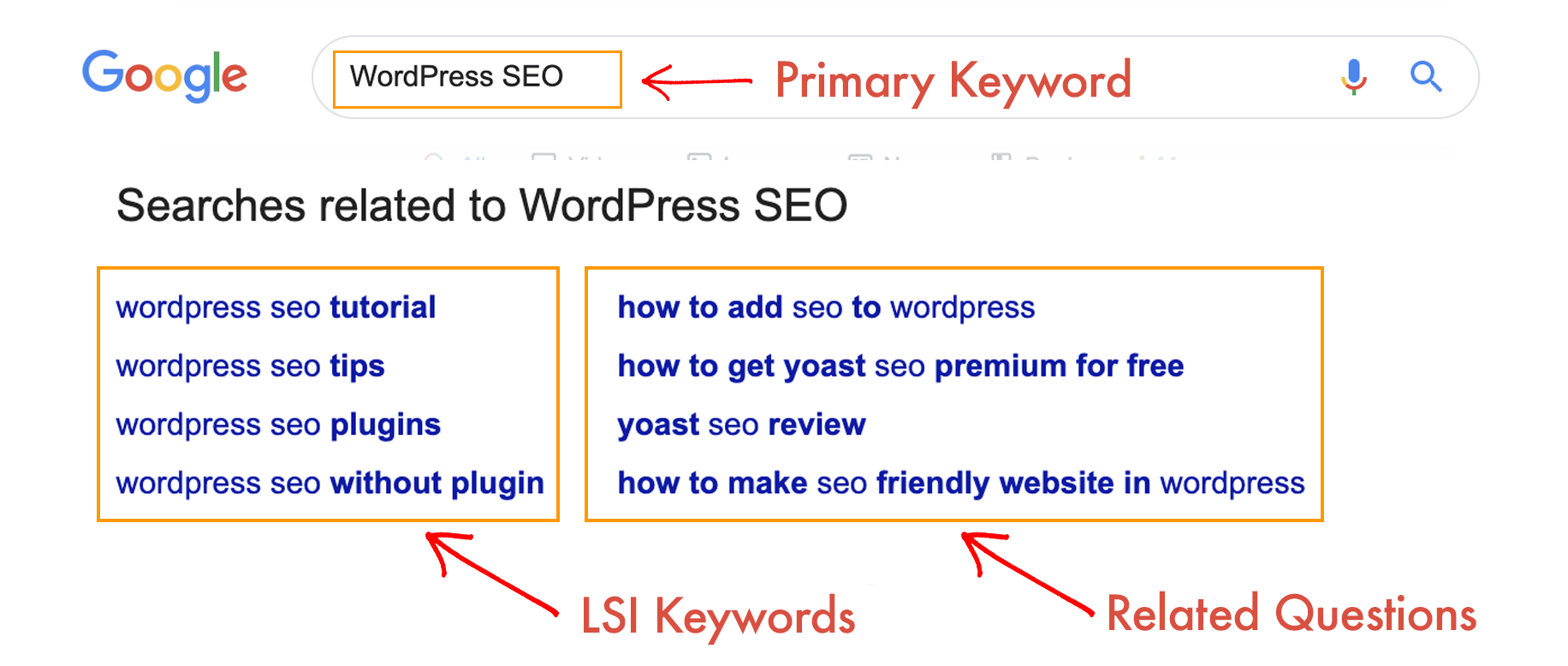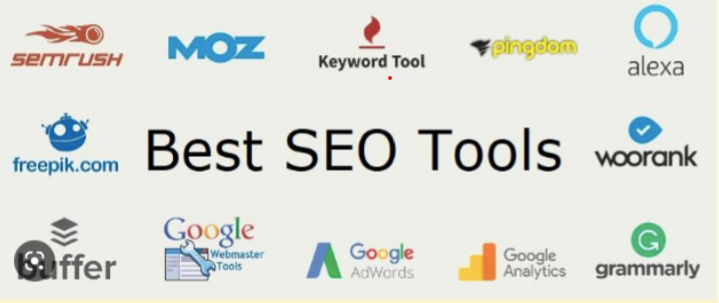
- jaro education
- 16, February 2024
- 11:00 am
When a person is putting some content on the webpage, it is important for the search engines to understand the terms. This is where LSI keywords come into play. Latent Semantic Indexing keywords, or LSI keywords, are systematically connected terms that search engines use to comprehend the webpage content deeply. Originally, this technology was patented in 1989. It is sometimes referred to as an approach to collecting textual data objects. In other words, similar words and phrases (“LSI keywords”) are used to better categorize the content of a page. Latent Semantic Indexing in SEO thus helps understand the context of the webpage. These days, people call it related keywords. Since digital marketing has made a mark in recent times, the importance of latent semantic indexing cannot be undermined. Let’s find out how LSI keywords boost SEO ranking.
How Do LSI Keywords Help in SEO Ranking?
Now that you know what LSI keyword is in SEO, you must explore its benefits. Latent semantic indexing keywords help a website rank high on search engines. Apart from that, here’s what it does:
Increase Reach
LSI semantically linked terms aid in the creation of a better search experience for users and aid in the calculation of various ranking variables.
Boost Ranking
Table of Contents
Including LSI keywords in the content helps search engines grasp the substance of your page and raises its ranking.
Provide Better Content Relevance
Including relevant keywords ensures that your text is not overburdened with connected words.
LSI Keywords: Examples
Let’s consider some LSI keywords examples to get a deeper understanding of the matter. Assume you own a website that promotes “healthy recipes”. In this case, integrating important LSI keywords becomes critical. These could include buzzwords like “plant-based recipes”, “healthy cooking techniques”, “nutritional values”, “balanced diet”, “nutritious meals”, “low-calorie dishes”, and “clean eating”. By carefully including these LSI keywords in your text, you express to search engines the breadth of knowledge your website provides on numerous areas of healthy eating. This method allows you to entice a varied audience interested in various aspects of nutrition and cookery, thus increasing the overall attractiveness and worth of your website.
What are the SEO Copywriting Basics?
It is important to learn the basics of SEO copywriting before jumping into the impact of LSI. So, let’s understand that with an example. Suppose you have created a website and want it to rank on the search engine for a target keyword.
From an on-page SEO standpoint, the most simple thing to do is repeat the core keyword two or three times throughout your piece of content. Google knows synonyms for the main term, so add a couple of those in the material when appropriate. Understand that you’re writing this for humans and not search engines.
After you’ve completed your core material and included your major keyword and some synonyms, you should check into LSI keyword research.
LSI is just an abbreviation for “other contextually relevant keywords.” It is made up of terms that are thematically linked to your primary keyword.
For instance, if my primary keyword was “Empire State Building,” possible synonyms for “building” could include “high-rise”, “tower” or “skyscraper”.
LSI keywords would be terms that are conceptually related but not synonyms.
In the example of the “Empire State Building,” suitable keyword ideas would include “New York City,” “Guinness Book of World Records,” “sightseeing,” and so on.
The list of LSI keywords has little to do with a building, yet “Guinness Book of World Records,” “New York City”, and “sightseeing” are frequently used on other websites that discuss the Empire State Building.
These two sentences have a semantic connection.
If you have a number of these LSI keywords in there, you may signal that document’s significance for related queries to any search engine scanning your papers.
What is LSI Keyword’s Impact on SEO and Search Engines?
Google’s crawling strategy was altered with the updating of LSI semantically relevant phrases, resulting in many SEO improvements:
Google Generates More Relevant Search Results For Webpages
Google recognizes phrases that often appear together in order to assist search engines in understanding the main subject of the web page that it scans. The search engine’s search results become more pertinent by employing more accurate classification.
Google Has a Better Understanding of The Pages
For core keywords and associated phrases, Google crawls your website so that it may use latent semantic indexing to grasp the material on a deeper level.
Google Paints An Overall Picture For Your Webpage
The algorithm of Google is meant to take into account your company’s name, website, and industry to comprehend each page of your website and how it pertains to your company as a whole.
Google Contextually Reads a Website
Google’s algorithm can read a page and categorize terms based on the context. Google can now distinguish between literal and metaphorical language.

*acmethemes.com
How to Select the Suitable LSI Keywords?
It is crucial to consider the following factors when selecting the LSI keywords:
Search Volume
Examine the search volume of LSI keywords as well. To boost the possible organic visitors to your website, prioritize those with a respectable search volume.
Relevance
Make certain that the keywords you select are directly related to your core keyword and the entire content of your website. They should blend in with the rest of your material, providing useful information and improving the reader’s experience.
How to Identify LSI Keywords?
In the Latent Sematically Indexing keywords research process, the first step is to generate important keyword ideas for your business. Adding related terms should be straightforward after you’ve created a keyword list. They are as follows:
People Also Ask Box
On the Google search outcomes page, the People Also Ask box will show you more alternatives related to your query. You may go over some of the results to see if there are any more terms that can be included in your text.
Google Autocomplete
Google Autocomplete, Google’s fast search function, is one of the simplest methods to identify similar phrases. You enter your goal keyword and are presented with a list of ideas and semantically similar phrases to include on your website.
Google Related Searches
To gain ideas for your website content, put your primary keyword into Google, browse the related search areas, and look at the relevant results.
SEO Tools
To find words related to the primary keywords, you can use SEO tools like Moz, Serpstat, and Ahrefs.

*LinkedIn.com
LSI Graph
An LSI Graph is an LSI keyword generator that may help you locate phrases related to the main keyword on your website.
What is the Role of LSI Keywords in SEO?
LSI keywords help in SEO in multiple ways as mentioned below.
Natural Language Processing
LSI keywords help search engines comprehend natural language searches more properly.
Avoiding Keyword Stuffing
With LSI keywords, you can opt for a more organic and natural SEO strategy. Instead of overusing a single term, use relevant LSI keywords to vary your content. This method helps you avoid keyword stuffing, which might impair your website’s rating.
Semantic Relevance
These keywords give extra context to search engines, assisting them in determining the relevancy of your material. This improved comprehension improves your website’s visibility and ranking in search results.
How to Use Latent Semantic Indexing Keywords For SEO?
People can improve SEO in various ways with the help of LSI keywords. These include:
Select LSI Keywords For The Topics
Before you can learn how to incorporate LSI keywords into your content, you must first determine which keywords are appropriate for your topic. Choose a major keyword and look for related keywords using SEO tools or by yourself.
Know the Monthly Search in Total
Choosing the ideal LSI keywords to employ might be difficult at times. You must decide if the keyword recommendation makes more sense as a standalone article or as a supplement to existing content. Based on the monthly search estimate, you can select how to proceed. The keywords provided by SEO tools will function in different settings, and you must choose which ones will perform best for your page.
Include LSI Keywords
Wherever you would’ve put primary keywords, include LSI keywords. This will involve headings, meta titles and descriptions throughout the body of the text and image alt text. Verify that you are naturally inserting similar words throughout your content to assist in widening your options.
View The User Experience
Avoid overusing LSI keywords in the article. You should incorporate enough related keywords to assist Google in comprehending your page’s content while not detracting from the reader’s experience. To do this, you must include relevant keywords while keeping the material natural and easy to follow. This will assist you in avoiding fines and improving the visitor experience.
What Are The Best Keyword Planner Tools?
If you’re just starting with SEO, then searching appropriate keywords for your content can be a daunting task. Thus, the following keyword planner tools are here to help you with the same.
Moz Keyword Explorer
With this tool, users will get detailed data on search volume, keyword difficulty and more. It is a great way to learn which keywords would be appropriate for the SEO strategy and your content.
Google AdWords Keyword Planner
This free keyword tool can help people find suitable phrases for their topics. The tool also provides various options for filtering your results, including average monthly searches, search volume and competition level.
Semrush
Semrush is a one-stop marketing platform that comes with a variety of keyword search tools involving the Keyword Difficulty Tool. This will help you identify the keywords that are most challenging to rank for.
Wask
Wask is a keyword tool that is designed for PPC(pay-per-click) marketing The features that this tool provides include a negative keywords list and keyword grouping.
Ubersuggest
This is a keyword planner that offers keyword ideas based on what people are searching for online. It is a great way to get ideas for content that will be engaging for your audience.
How Does Latent Semantic Indexing Work?
Latent Semantic Indexing works on a subset of Singular Value Decomposition (SVD). It is a mathematical technique that breaks down a matrix into its constituent elements for quick and easy computations. LSI eliminates stop words like pronouns, conjunctions and common verbs when examining a string of words. This separates the words that make up the major ‘content’ of a sentence. Here is an example of how it can look:
The quick brown fox jumps over the lazy dog
These terms are then entered into a Term Document Matrix (TDM). A TDM is a two-dimensional grid that indicates the frequency with which each single word (or phrase) appears in the texts in a data set.
The TDM is then subjected to weighing processes. A simple example would be to assign a value of 1 to all papers that include the term and a value of 0 to all documents that do not. Co-occurrence occurs when terms appear with the same overall frequency in these publications. To know TDM well, an illustration is given below. Furthermore, you get to understand how it evaluates the co-occurrence of many phrases:

| Quick | Brown | Fox | Jumps | Overs | Lazy | Dog | |
|---|---|---|---|---|---|---|---|
| The quick brown for jumps over the lazy dog | 1 | 1 | 1 | 1 | 1 | 1 | 1 |
| If the fox is quick he can jumps over the dog. | 1 | 0 | 1 | 0 | 1 | 0 | 1 |
| Foxes are quick. Dogs are lazy. | 0 | 1 | 1 | 0 | 0 | 1 | 1 |
| Can a fox jump over a dog? | 0 | 0 | 1 | 1 | 1 | 0 | 1 |
*oncrawl.com
SVD allows individuals to approximate word usage trends across all papers. LSI-generated SVD vectors predict meaning more correctly than individual phrase analysis. Finally, LSI can employ word connections to better grasp their sense or meaning, in a given context.
What is the Link Between LSI Keywords And SEO?
Google, in its early years, found that search engines were ranking webpages based on the frequency of a specific term. However, this does not guarantee the most appropriate search result. Instead, Google began ranking websites that they deemed to be reliable sources of information. Google’s algorithms would become more accurate in filtering out low-quality and irrelevant websites over time. As a result, rather than depending on the specific terms used, marketers must comprehend the intent behind a search. This is why, in an essay on outmoded SEO ideas, Roger Montti defined LSI as “training wheels for search engines”. adding that LSI has “little to zero relevance to how search engines rank websites today.”
The significance of a search query is inextricably related to its purpose. Google keeps a document called Search Quality Evaluator Guidelines on file. In these guidelines, they provide four useful categories for user purposes:
Do Query
This indicates a desire to participate in a certain action, such as an online purchase or download. All of these questions are characterized by the concept of ‘interaction.’
Know Query
This signifies looking for information about a certain topic. A variation on this is the ‘Know Simple’ inquiry, which is used when users are looking for a specific response.
Visit In-Person Query
The user is looking for a physical site, such as a store or restaurant.
Website Query
This occurs when a user searches for a certain website or page. These searches suggest a prior knowledge of a specific website or brand.
Google gained a competitive advantage because of the principle underpinning LSI, which defines a word’s contextual meaning inside a sentence. However, the notion that ‘LSI keywords’ were suddenly a golden ticket to SEO success spread.
Is There Any Relevance of LSI Keywords?
There are various notable publications that support LSI keywords. However, other sources, including Google’s Webmaster Trends Analyst John Mueller, claim they are fiction. These sources began to raise the following concerns:
- Before the World Wide Web, LSI was created and was never intended to be used on such a huge and dynamic dataset.
- The United States copyright on Latent Semantic Indexing, issued to Bell Communications Research Inc. in 1989, would have expired in 2008. Google’s use of LSI would be analogous, according to Bill Slawski to “using a smart telegraph device to connect to the mobile web.”
- Google uses RankBrain, a machine learning tool that converts large amounts of text into ‘vectors’ – mathematical entities that aid computers in understanding written language.
Finally, LSI exposes a marketing truth: investigating a word’s unique context helps us comprehend what the user is looking for better than keywords packed into content. This does not, nevertheless, prove that Google places based on LSI.
What Are The Limitations of Using LSI Keywords?
Although you know what are LSI keywords and that they don’t have any significant downsides, the indexing strategy does contain several limits, including:
- It is incapable of recognizing underlying keyword concepts or irony.
- It believes that semantically linked words can only have one meaning.
- It disregards word order and eliminates conjunctions and prepositions.
Learn How to Use LSI by Enrolling in the Leading Digital Marketing Course
You can use various tools to use LSI keywords. However, to develop SEO skills, enrolling in a digital marketing course can be a good choice. For that, IIM Ahmedabad is offering an Advanced Program in Digital Marketing: Business Models, Processes and Technologies.
LSI is a core part of Digital Marketing. Hence, to understand Latent Semantic Indexing you need to have a solid foundation in digital marketing. With a rising number of customers utilizing internet-connected devices, digital marketing enables businesses to simply and efficiently contact, engage, and convert them. Expertise in generating digital solutions, digitally enhancing services, and growing corporate capabilities through digital and social media campaigns is in high demand. This course is designed for mid and senior-level executives/entrepreneurs who manage business KPIs by driving digital marketing targeting initiatives.
The course will give participants a comprehensive learning experience that will enable them to make critical decisions on the development and assessment of digital initiatives. It will also assist them in comprehending how to merge the many functions of digital marketing and apply them to alter the marketing mix. Attending this course will help students advance their marketing careers in the present environment.
Final Thoughts
In the world of SEO, including LSI keywords is critical for increasing search engine ranks, improving user experience, and avoiding the pitfalls of keyword stuffing. You may optimize your website’s content and provide relevant information to your readers by understanding the significance of LSI keywords and their contextual relevance. This method allows search engines to better comprehend the context and meaning of your material, leading to higher ranks and a more enjoyable user experience. To keep ahead of the newest trends in your sector, use relevant LSI keywords that smoothly integrate with your content, analyze related search terms regularly, and use LSI keyword tools.









